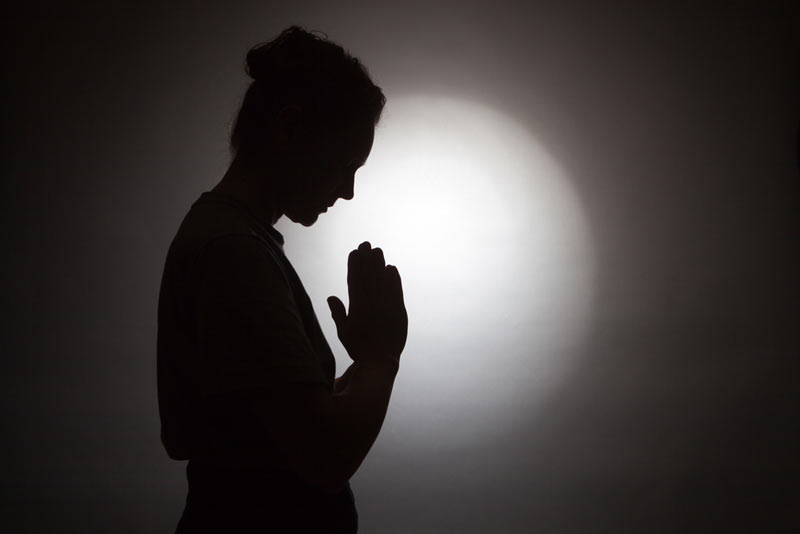Most Religious States Revealed in New Survey

If you like to attend church and have a strong connection with religion, Mississippi may be your best bet, according to a new survey finding the Magnolia State is the most religious, followed by Utah and Alabama.
At the other end of the pew, Vermont and New Hampshire came in as the least religious U.S. states.
Individuals who indicated that religion is an important part of their daily life and that they attend religious services every week or almost every week were classified as "very religious" by Gallup officials. That definition would mean 40 percent of Americans nationwide are very religious, the survey found. Another 32 percent of Americans are nonreligious, meaning they reported religion is not an important part of their daily life and that they seldom or never attend religious services.
The results are based on telephone interviews conducted between Jan. 1 and Dec. 31, 2011, with a random sample of 353,492 adults, ages 18 and older, living in all 50 U.S. states and the District of Columbia. [See full list of U.S. states and religiosity]
At the state level, there were some extremes. Fifty-nine percent of Mississippians are very religious and 11 percent nonreligious, while 23 percent of Vermonters are very religious and 58 percent are nonreligious. New Hampshire tied Vermont with 23 percent of its residents grouped as very religious, though slightly fewer (52 percent) residents in the Granite State would be considered nonreligious.
The Southern states bustled with religiosity; eight of the 10 most religious states in 2011 are located there and include: Mississippi, Alabama, Louisiana, Arkansas, South Carolina, Tennessee, North Carolina and Georgia. Rounding out the top 10 are Oklahoma at No. 10 and Utah at No. 2.
Top 10 most religious states
Get the world’s most fascinating discoveries delivered straight to your inbox.
- Mississippi: 59 percent are very religious
- Utah: 57 percent
- Alabama: 56 percent
- Louisiana: 54 percent
- Arkansas: 54 percent
- South Carolina: 54 percent
- Tennessee: 52 percent
- North Carolina: 50 percent
- Georgia: 48 percent
- Oklahoma: 48 percent
Bottom 10 (least religious states)
- Vermont: 23 percent are very religious
- New Hampshire: 23 percent
- Maine: 25 percent
- Massachusetts: 28 percent
- Alaska: 28 percent
- Oregon: 30 percent
- Nevada: 30 percent
- Washington: 30 percent
- Connecticut: 31 percent
- District of Columbia (tie): 32 percent
- New York (tie): 32 percent
- Rhode Island (tie): 32 percent
These patterns of religiousness have held steady in recent years, according to Gallup, with Southern states rising to the top as the most religious, and states in New England and the West falling to the bottom as the least religious.
Rather than the result of differences in underlying demographics or religious identities in states, Gallup research suggests the state religiosity differences may be a part of a state-level cultural phenomenon.
For instance, though Mississippi has the highest percentage of blacks of any U.S. state — and blacks are the most religious of any major race or ethnicity in the country — white residents of the Magnolia State are highly religious, more so than whites in other states. Same oddity can be seen in Vermont, where residents who identified as Catholic or Protestant being less religious than residents identifying with those same religions but who live in the South.
Something about the state's culture, based partly on that state's history, may be behind residents' religiosity, Gallup suggests.
The results may have implications for politics. When looking over the U.S. state-by-state map of religiosity, Gallup found "the most religious states in the union generally are the most Republican, while the least religious states skew more toward the Democratic Party," they said in a statement. "This means that the most divided states — and thus, those where most of the heavy-duty campaigning in this year's presidential election will be taking place — are the ones where residents tend to be neither at the very religious nor at the nonreligious end of the spectrum."
The religious scale may also help to explain well-being, since research suggests, at least for some and in some cases, that church can chase away the blues. For instance, a study published in January 2012 in the journal Psychological Science found that people who are religious have higher self-esteem and better psychological adjustment than the nonreligious only in countries where belief in religion is common. People who attend a church, mosque or synagogue get a sharp boost in happiness on Sundays, while less-frequent attendees see a decline in good feelings that day.
Another study suggested the social networks churchgoers build by sitting in the pews may be the reason religious people are happier.
Follow LiveScience for the latest in science news and discoveries on Twitter @livescience and on Facebook.
Jeanna Bryner is managing editor of Scientific American. Previously she was editor in chief of Live Science and, prior to that, an editor at Scholastic's Science World magazine. Bryner has an English degree from Salisbury University, a master's degree in biogeochemistry and environmental sciences from the University of Maryland and a graduate science journalism degree from New York University. She has worked as a biologist in Florida, where she monitored wetlands and did field surveys for endangered species, including the gorgeous Florida Scrub Jay. She also received an ocean sciences journalism fellowship from the Woods Hole Oceanographic Institution. She is a firm believer that science is for everyone and that just about everything can be viewed through the lens of science.


